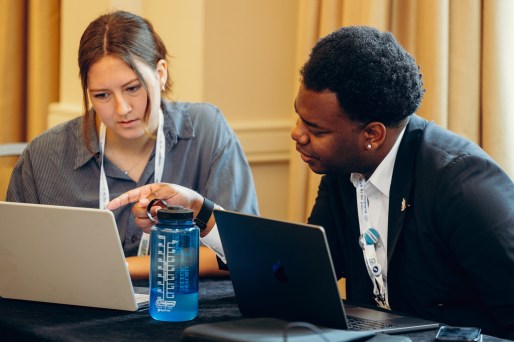The Growth of Subscription Models and How stnews.live Adapts
Wiki Article
The Value of Fact-Checking worldwide of News Online
The frequency of false information in today's on-line news landscape has actually reached worrying levels. Fact-checking companies play a necessary role in counteracting this trend. They validate cases and enhance the reputation of journalism. However, the performance of these companies commonly rests on their techniques and public assumption. As audiences browse this intricate setting, the ramifications of their findings may shape the future of news intake and trust fund. What does this mean for the honesty of info relocating forward?
The Surge of Misinformation in the Digital Age
Just how has the advent of electronic modern technology contributed to the spread of false information? The fast development of the internet and social media sites platforms has facilitated the circulation of information at an extraordinary rate. Customers can share short articles, video clips, and viewpoints with a mere click, often without confirming the material's precision. Algorithms focus on mind-blowing or emotionally charged product, resulting in a spreading of deceptive narratives that capture focus.Additionally, the anonymity paid for by digital systems permits people to spread out false details without responsibility (stnews.live). False information prospers in echo chambers, where customers are subjected mostly to perspectives that enhance their ideas, additionally entrenching frauds. The saturation of information can bewilder users, making it challenging to determine qualified sources from undependable ones. Consequently, misinformation has actually come to be a prevalent issue in the digital landscape, affecting public opinion and count on in legit news resources
The Duty of Fact-Checking Organizations
Fact-checking companies play an essential role in improving the reliability of journalism by validating cases made in news reports. Their efforts are crucial in combating false information, making sure that precise info prevails in the digital landscape. By holding media electrical outlets answerable, these companies add significantly to notified public discourse.Enhancing Credibility in Journalism
While false information proliferates in the digital age, fact-checking companies play a crucial duty in improving the credibility of journalism. These companies thoroughly validate claims made in news articles, public declarations, and social media articles, making sure that details shared to the public is accurate and reliable. By offering independent assessments, they work as a crucial resource for reporters, assisting them preserve high requirements of stability. In enhancement, their initiatives promote openness in media, fostering public trust. As target markets end up being increasingly critical, the visibility of trusted fact-checking entities can identify reliable news sources from those that might spread out falsehoods. Inevitably, the commitment of fact-checking organizations to promote reliability is vital for the health of autonomous discourse.Combating False Information Successfully
As false information remains to spread quickly across digital platforms, the role of fact-checking organizations comes to be significantly important in the battle for exact details. These organizations act as guard dogs, looking at claims made by public numbers and media outlets to ensure responsibility. By utilizing extensive research study approaches and professional evaluation, they validate truths and clear up deceptive stories. Their searchings for are distributed via various networks, enlightening the general public and fostering essential thinking. Furthermore, collaborations with social media sites platforms improve their reach, permitting timely flagging of false details. As digital literacy expands, the influence of fact-checking organizations is important in empowering audiences to discern reality from fraud, ultimately adding to a more informed society.Exactly How Misinformation Affects Public Assumption
False information greatly undermines rely on media, leading audiences to wonder about the integrity of news resources. Because of this, people typically move towards outlets that strengthen their present beliefs, adding to the polarization of opinions. This dynamic creates a fragmented information landscape, where shared comprehending becomes progressively difficult to attain.Count on Media

Rely on media has become significantly fragile in the electronic age, where the quick spread of incorrect info can skew public understanding. As misinformation multiplies throughout social networks and on-line platforms, audiences frequently locate it challenging to discern qualified sources from unstable ones. This unpredictability fosters skepticism, leading numerous people to question the objectives behind news coverage. Subsequently, rely on established media outlets has actually reduced, as consumers significantly turn to different sources that may do not have rigorous editorial requirements. This disintegration of depend on not just affects private beliefs but additionally undermines the cumulative ability to take part in informed conversations. Ultimately, the integrity of journalism goes to risk, highlighting the important need for efficient fact-checking to restore confidence in the media landscape.

Polarization of Point of views
The enhancing apprehension toward traditional media has added to a growing polarization of viewpoints among the general public. False information, typically shared via social networks and on the internet systems, plays a significant role in shaping distinct ideological splits. People frequently look for out details that straightens with their pre-existing beliefs, strengthening their viewpoints while dismissing opposing viewpoints. This echo chamber result intensifies departments, bring about a fragmented public discussion where agreement comes to be increasingly elusive. Furthermore, sensationalized stories thrive in this atmosphere, further click to read skewing public perception and promoting suspect in trustworthy sources. As polarization escalates, the requirement for reliable fact-checking ends up being critical to connect voids and advertise educated conversations, eventually making sure a more cohesive culture with the ability of maneuvering complicated concerns.Methods for Effective Fact-Checking
Effective fact-checking depends on an organized strategy that consists of extensive research study, confirmation of sources, and crucial evaluation of claims. A fundamental strategy is cross-referencing information from several reliable resources to validate its precision. Fact-checkers usually utilize specialized databases and archives to trace the beginning of specific statements, making certain that the reported info lines up with documented evidence.One more necessary approach entails inspecting the context in which claims exist. Deceptive info can emerge from out-of-context quotations or selective data use. By analyzing the broader story, fact-checkers can determine possible prejudices or false impressions.
Additionally, engaging with experts in relevant fields can provide quality and understanding that enhances the fact-checking process. This partnership can reveal subtleties that laypeople might forget - stnews.live. Ultimately, a regimented strategy integrating these techniques cultivates a more educated public, boosting the dependability of details disseminated in the digital age
The Effect of Social Network on News Usage
Just how has social networks changed the means individuals take in news? The development of systems like Facebook, Twitter, and Instagram has especially transformed news consumption patterns. News is currently shared swiftly, permitting users to gain access to real-time updates and engage with material via sort, shares, and remarks. This immediacy has cultivated a choice for bite-sized info, commonly at the expense of extensive evaluation.In addition, social networks allows customized news feeds, where algorithms curate content based upon user choices, creating echo chambers that may limit exposure to varied viewpoints. The function of traditional news electrical outlets has actually lessened as people increasingly count on peer referrals and trending subjects. Consequently, the credibility of info is commonly jeopardized, as sensationalism can overshadow accurate reporting. Overall, social media sites has actually improved news intake, stressing speed and personalization while testing the standards of journalistic honesty.
Encouraging Target Markets to Identify Reputable Resources

Additionally, analyzing the authorship and organizational background of newspaper article can disclose potential prejudices. Cross-referencing information throughout multiple trusted outlets additionally browse around this web-site enhances the verification process. Using electronic devices, such as internet browser expansions that rank the reliability of internet sites, can additionally help in determining trustworthy information. By proactively involving with these sources and growing an important attitude, target markets can better equip themselves to recognize trustworthy news sources, inevitably cultivating a much more informed culture amidst the intricacies of today's media atmosphere.
The Future of Journalism and Fact-Checking
As the media landscape develops, the future of journalism and fact-checking encounters both challenges and possibilities. The rise of electronic platforms has actually democratized information dissemination, allowing diverse voices to arise. Nevertheless, this has likewise resulted in the expansion of misinformation, requiring durable fact-checking devices. Journalists will significantly depend on modern technology, including AI tools, to validate truths rapidly and effectively.Collaboration in between wire service and fact-checking entities is anticipated to enhance reputation and openness. Target market interaction will play a vital role, as educated readers become significant partners in determining credible content.
The demand for accountability and precision is likely to expand, pushing reporters to maintain high requirements in their coverage. Inevitably, the future of journalism might rest on its capacity to adjust to technical improvements while keeping journalistic honesty, making certain that fact-checking continues to be a keystone of credible news.
Often Asked Questions
How Can I Report Misinformation I Run Into Online?
To report false information encountered online, individuals can make use of platform-specific coverage tools, provide clear evidence, and share the details with fact-checking organizations. Engaging with neighborhood conversations can also help elevate understanding regarding the misinformation.What Are Typical Signs of Misinformation in News Articles?
Usual indicators of false information in news write-ups consist of astonishing headings, lack of trustworthy sources, emotional language, irregular realities, and lack of author qualifications. Visitors ought to critically examine content for these indications to recognize accuracy.Just How Do Fact-Checkers Confirm Resources?
Fact-checkers verify resources by cross-referencing information with trustworthy data sources, consulting professionals, and checking out the initial context of claims. They also assess the reliability of the resources, making sure accurate and reliable info for public intake.What Lawsuits Can Be Taken Versus Misinformation?
Lawsuits against false information may include character assassination lawsuits, cease-and-desist orders, and governing penalties. Sufferers can seek redress with civil courts, while some territories enforce penalties or sanctions on systems disseminating false info.check out here
Exist Apps for Fact-Checking News On-The-Go?
Numerous apps exist for fact-checking news on-the-go, including Snopes, FactCheck.org, and PolitiFact. These applications help users validate claims rapidly, promoting notified decision-making and cultivating a much more discerning technique to consuming news in real-time.Report this wiki page